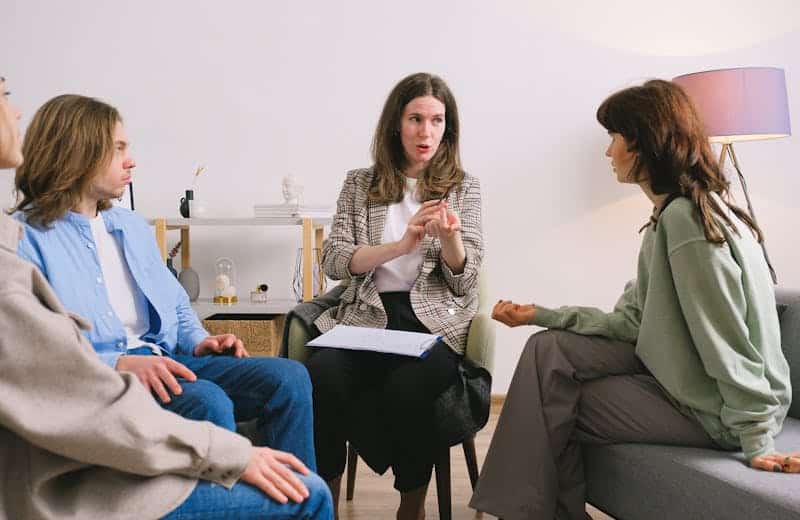Opioid addiction is a severe issue that affects millions of people globally. If you or someone you care about is struggling with addiction, you are not alone. The good news is that there are extremely effective Opioid Addiction Treatment Programs (OATPs) that can assist you in long-term recovery.
What are Opioid Addiction Treatment Programs?
Opioid Addiction Treatment Programs are comprehensive programs that incorporate medication-assisted treatment (MAT) and behavioral therapy.
The most effective opioid addiction treatment is a combination of medicine and behavioral therapy. Let’s look at the two cornerstones of effective programs:
Medication-assisted treatment (MAT) uses drugs like methadone, buprenorphine, and naltrexone to alleviate cravings and withdrawal symptoms. This enables people to focus on rehabilitation and reconstructing their lives.
Behavioral Therapy: Therapy addresses the fundamental reasons of addiction and provides clients with coping tools to avoid relapse. Common approaches include cognitive-behavioral therapy (CBT), motivational interviewing, and family therapy.
Causes of Opioid Addiction
Opioid addiction is a complicated illness with many underlying causes. This isn’t only about willpower or moral failing. Here are the primary reasons:
Genetics: Studies have indicated that genetics influence a person’s susceptibility to opiate addiction. People with a family history of substance misuse are more prone to become addicted themselves.
Environment: Childhood trauma, neglect, or abuse can all raise the likelihood of opiate addiction. People who have experienced these experiences may turn to opioids to deal with their emotional suffering.
Mental health conditions: People with mental health disorders, such as depression, anxiety, or PTSD, are more likely to develop opiate addiction. They may self-treat their symptoms using painkillers.
Access to opioids: The simpler it is to obtain opioids, the higher the danger of addiction. This covers both prescribed opioids and illegal opioids like heroin.
If you or someone you know is struggling with opioid addiction, help is available.
Signs of Opioid Addiction
Behavioral:
- Craving opioids: This is an intense desire to consume the substance, even if the effects are bad.
- Doctor shopping is the practice of seeking opioid prescriptions from various physicians.
- Using opioids without a prescription: This might include purchasing them illegally or using someone else’s prescription.
- Needing to take increasing dosages of opioids to have the same effect (tolerance): This indicates that the body has become dependent on the medication.
- Muscle pains, nausea, vomiting, and diarrhea are some of the withdrawal symptoms associated with opioid addiction.
- Engaging in dangerous acts to get opioids, such as stealing or selling pills.
- Changes in social behavior include isolating oneself from friends and family or spending time with new people who use opioids.
- A loss of interest in formerly pleasurable hobbies or activities.
- Legal issues: Getting arrested for opioid possession or other drug-related offenses.
Physical:
- Physical intoxication symptoms include drowsiness, disorientation, constipation, and shallow breathing.
- Changes in sleep patterns: Insomnia and excessive drowsiness.
- Appetite changes include weight loss or growth.
- Poor personal hygiene: failing to bathe or care for oneself.
Contact Us
CALL US NOW
Orlando Treatment Solutions will iron out the details for you in a manner that will make you confident in your path to sobriety. That first simple call is your ticket to making Orlando Treatment Solutions your solution for addiction. Get the freedom from addiction that you deserve today.
Benefits of Opioid Addiction Treatment Programs
- Reduced Cravings and Withdrawal Symptoms: MAT drugs greatly reduce cravings and withdrawal symptoms, allowing patients to focus on recovery.
- Increased Treatment Retention: OATPs have been demonstrated to boost treatment retention rates, which means you’re more likely to stick with the program for the long term.
- Improved Quality of Life: Effective therapy can result in a considerable improvement in your general well-being, allowing you to resume employment, education, and a full lifestyle.
Finding the Right Treatment Program
The best treatment plan takes into account your specific demands and circumstances. Here are some variables to consider:

- The severity of addiction.
- Co-occurring mental health issues
- Level of help required (outpatient, inpatient).
- Insurance coverage.
Opioid Addiction Treatment Program At Orlando Treatment Solutions
Remember that healing is possible. You may overcome addiction and establish a better future by getting expert treatment from an Opioid Addiction Treatment Program.
If you or someone you know is struggling with opioid addiction, there is help available. By educating yourself and seeking help, you can overcome addiction and build a brighter future. Orlando Treatment Solutions offers beneficial treatment programs that may help you recover your life. Call us at (321) 415-3213 for help today.

Years of experience
Our leadership team has extensive experience in dual-diagnosis treatment and is ready to help those who are struggling with substance use and mental health.

Specialists
Our staff consists of many licensed addiction and mental health treatment facilitators and other staff who are ready to share their experience and their success.

Happy patients
Orlando Treatment Solutions has helped over 2,000 people who have struggled with substance use (alcohol and drug addiction) and mental health find freedom.
Contact Us
GET IN TOUCH
Reaching out to Orlando Treatment Solutions may be the most important call of your recovery process. A caring professional is waiting for your call to be your guide to addiction-free living.
 info@shc.health
info@shc.health 
